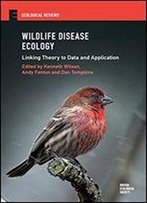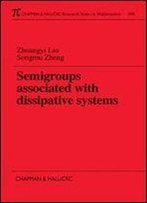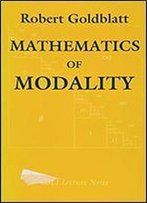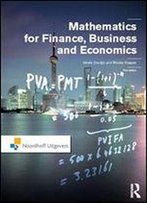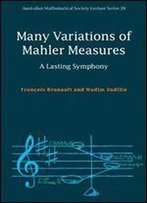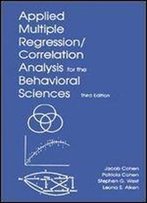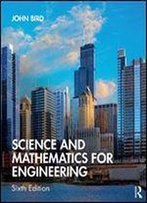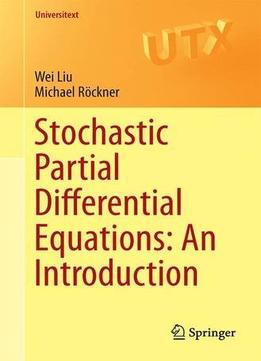
Stochastic Partial Differential Equations
by Michael Röckner /
2015 / English / PDF
2.1 MB Download
by Wei Liu (Author), Michael Röckner (Author) This book provides an introduction to the theory of stochastic partial differential equations (SPDEs) of evolutionary type. SPDEs are one of the main research directions in probability theory with several wide ranging applications. Many types of dynamics with stochastic influence in nature or man-made complex systems can be modelled by such equations. The theory of SPDEs is based both on the theory of deterministic partial differential equations, as well as on modern stochastic analysis. Whilst this volume mainly follows the ‘variational approach’, it also contains a short account on the ‘semigroup (or mild solution) approach’. In particular, the volume contains a complete presentation of the main existence and uniqueness results in the case of locally monotone coefficients. Various types of generalized coercivity conditions are shown to guarantee non-explosion, but also a systematic approach to treat SPDEs with explosion in finite time is developed. It is, so far, the only book where the latter and the ‘locally monotone case’ is presented in a detailed and complete way for SPDEs. The extension to this more general framework for SPDEs, for example, in comparison to the well-known case of globally monotone coefficients, substantially widens the applicability of the results. In addition, it leads to a unified approach and to simplified proofs in many classical examples. These include a large number of SPDEs not covered by the ‘globally monotone case’, such as, for exa mple, stochastic Burgers or stochastic 2D and 3D Navier-Stokes equations, stochastic Cahn-Hilliard equations and stochastic surface growth models. To keep the book self-contained and prerequisites low, necessary results about SDEs in finite dimensions are also included with complete proofs as well as a chapter on stochastic integration on Hilbert spaces. Further fundamentals (for example, a detailed account on the Yamada-Watanabe theorem in infinite dimensions) used in the book have added proofs in the appendix. The book can be used as a textbook for a one-year graduate course. is currently Jiangsu Specially-Appointed Professor of Mathematics at Jiangsu Normal University. He holds a PhD from University of Bielefeld. He has mostly worked in the field of stochastic partial differential equations and random dynamical systems. He has made contributions on the well-posedness and asymptotic properties (such as large deviation principle, ergodicity and random attractor) of a general class of stochastic partial differential equations using the variational approach. In particular, jointly with Michael Röckner, he developed an extended variational framework (by introducing locally monotone condition and generalized coercivity condition) which gives a unified framework of studying a large class of SPDEs and also provides a systematic approach to SPDEs with solutions exploding in finite time. has held positions at the Universities of Edinburgh and Bonn, as well as Purdue University. He is currently Professor of Mathematics at Bielefeld University. His main fields of research are in Probability Theory and Analysis, especially in Stochastic Analysis. He has made various contributions to these fields, in particular to the Theory of Dirichlet Forms and Markov Processes, to Fokker-Planck-Kolmogorov Equations and to Stochastic Partial Differential Equations (SPDEs). Among his main interests are, furthermore, applications to problems in Mathematical Physics. He is a coauthor of about 250 publications in scientific journals, 4 books and one Springer Lecture Notes in Mathematics. In the past few years jointly with Wei Liu he developed an extended variational approach to SPDEs, relaxing the usual monotonicity and coercivity conditions, also allowing explosion of solutions in finite time. This leads to a unifying systematic framework covering a large class of classical, but also new types of SPDEs.


